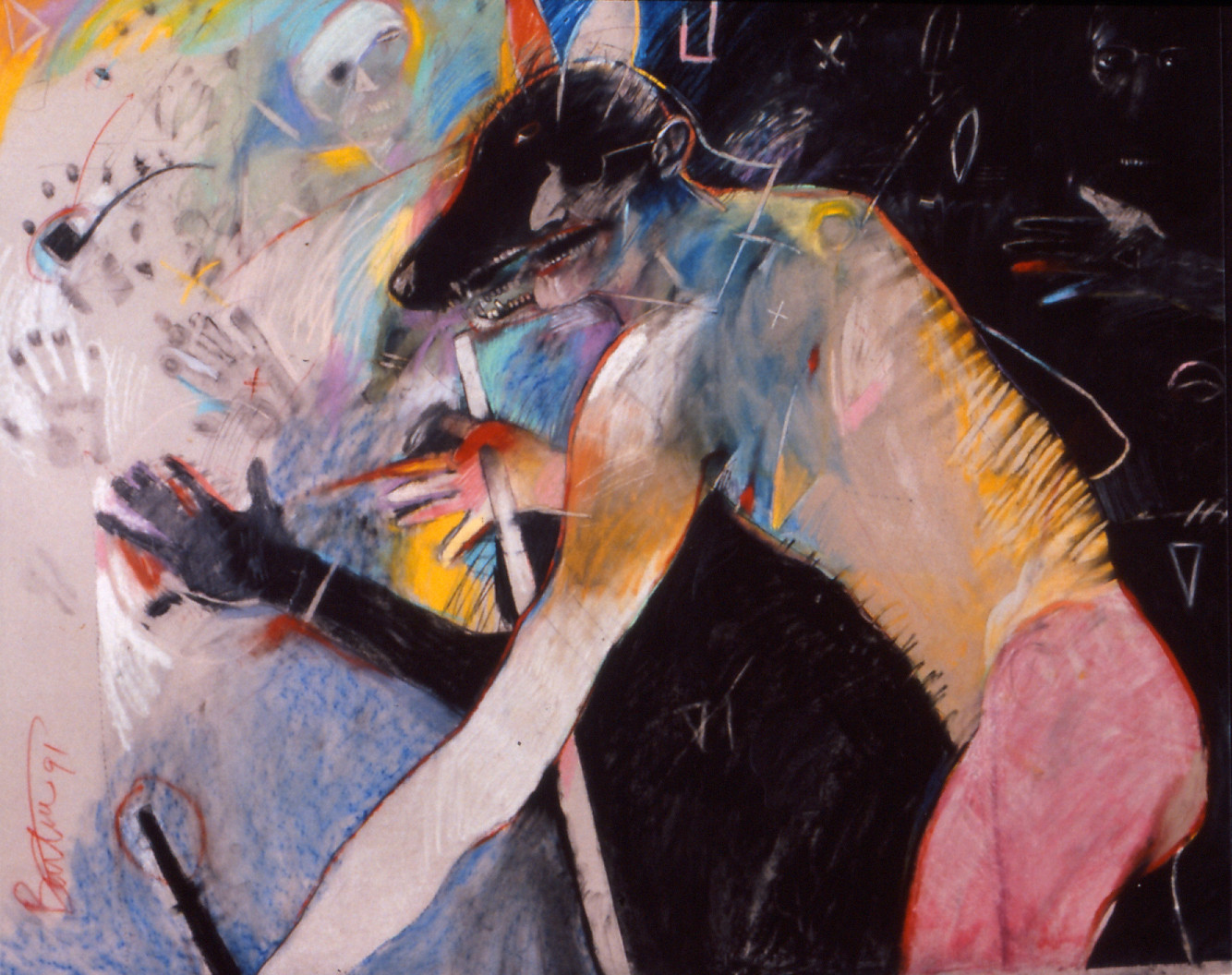Not Vanishing: Contemporary Expressions In Indigenous Art, 1977–2015
August 5 2016 - December 10 2016
MAM is pleased to present Not Vanishing, a survey of significant artworks by American Indian artists from the Pacific Northwest region. The exhibit was curated by Gail Tremblay (Onondaga/Micmac) and Miles R. Miller (Yakama/Nez Perce) and organized for travel by the Museum of Northwest Art in LaConner, Washington.
The survey includes artists familiar to the Missoula community, such as Joe Feddersen (Confederated Colville Tribes), Jaune Quick-to-See Smith (Salish-Kootenai, Métis-Cree, Shoshone-Bannock) and James Lavadour (Walla Walla), and we are happy to see them again. But we are especially excited to introduce the artwork and perspectives of a new assemblage of skilled, award-winning artists, in various stages of career, to our community. Artists in the exhibit include legends that are no longer with us such recently-deceased Rick Bartow (Mad River Band Wiyot), James Schoppert (Tlingit), and Conrad House (Dine/Navajo, Oneida), for whom the Heard Museum established an award to honor his legacy.
Not Vanishing displays the rich diversity and wide range of artistic approaches and subject matter found in today’s contemporary Native art scene. The spectrum of artmaking ranges from the direct deployment of traditional materials such as weaving, beading, and carving, to indirect homages using ceramic or glass, to the European studio media of drawing, painting, printmaking, photography, and sculpture. But regardless of materials or techniques, each artist shares a unique artmaking perspective that honors tradition and heritage, communicates the struggles of surviving within a hostile dominant culture, or both. These artists elevate the discussion using wry humor, intelligent insight, and rich talent to share cultural experiences, make social commentary, and in some cases to reimagine a bitter past.
Curator Gail Tremblay teaches at The Evergreen State College in Olympia, WA. She received her BFA in drama from the University of New Hampshire in 1967 and her MFA in creative writing from the University of Oregon in 1969. Tremblay has been working in the visual arts community of the Pacific Northwest for more than 20 years. Her woven film baskets have been acquired by museums and corporate collections throughout the United States, including the Portland Art Museum, the Hallie Ford Museum, and Microsoft. In 2001, Tremblay was awarded the Governor’s Arts and Heritage Award for the State of Washington.
Miles R. Miller is an artist, scholar, and independent curator. He has developed exhibits with the Burke Museum, the Hood Museum, and the Northwest Museum of Art and Culture and worked in the collections of the National Museum of the American Indian (including a curatorial residency), the Peabody Museum, and the Nez Perce National Historic Park. Miller’s research focuses on Native American ethnographic and contemporary arts, not only as aesthetic objects, but artworks rich in concepts of authority, pluralism, and social identity. As a curator, he encourages artists to actively articulate their tribal histories and knowledge portrayed in visual culture and invites audiences to meet cultural specialists who can express their perspectives and experiences.


